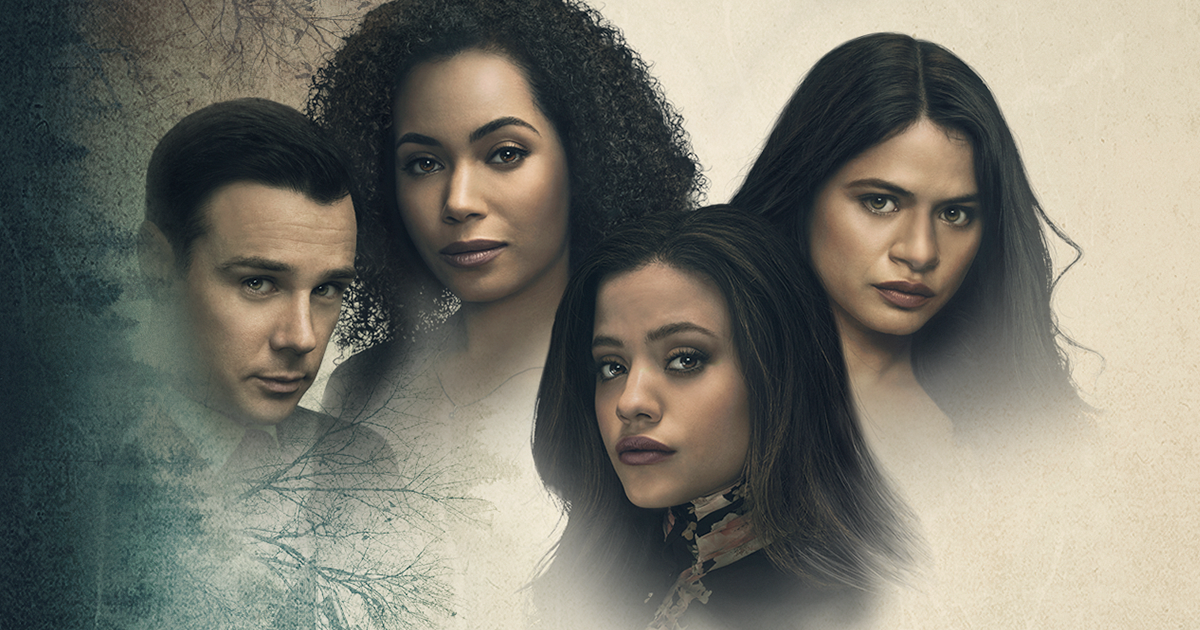I’m sad about Charmed or, to be more specific, season two of the Charmed reboot. Like the upcoming Party of Five update, this Charmed replaces the original white family with a brown one to create something new. I was excited and tore through the first season, telling everyone to watch it (not to say there weren’t problems — like only one of the three leads actually identifying as Latina). Despite my enthusiasm, ratings were not great and attention scarce. The powers that be at CW decided to reboot the reboot, replacing the showrunners and premise. I’ve been watching this season live and now that it’s a third of the way through, I’m ready to call it: it’s terrible.
The first season was billed as purposefully “feminist,” a slant that gave it much of its joy and depth. There were jokes about incels, manic pixie dream girls, and Roxane Gay’s twitter feed. There was also a withering look at rape culture, a re-writing of the Medusa myth, and thoughtful commentary on #MeToo. In the first season, feminism grounded both the show’s off-hand jokes and its larger themes. In the second season, the feminist point of view is gone. Yes, the premise is still three-sisters-must-save-the-world. But I’m trying to think of at least one joke from the last seven episodes and literally, nothing comes to mind. In contrast, I remember plenty of funny moments from the first season and I watched it months ago.
Part of the problem is the change of setting. Last season took place on a college campus. Universities are ripe landscapes, a mecca for youth to ponder “big” questions, debating what society should look like. The second season, in contrast, takes place in a co-working space. And while the show takes jabs at the “visionaries” who work there, the budding entrepreneurs don’t say a thing. Instead, the show focuses on those who serve them — the admin personnel, the guy who runs the boxing gym, the woman who owns the (witchy) boutique. Centering these folks could be an interesting class commentary but the show doesn’t go there. In fact, it doesn’t really go anywhere. Without the backdrop of campus politics, it doesn’t have a way to make its drama-of-the-week about anything more than the plot at hand.
And that plot is not particularly interesting. Without broader meaning, Charmed needs actually compelling characters, relationships, and mysteries and it doesn’t have any of that. Rupert Evans who plays Harry was crushworthy a la Giles of Buffy in season one but his taboo romance with Macy this season is hard to care about. They don’t have much chemistry and without his role as the antiquated department chair of Women’s Studies, his personality seems to have evaporated. He’s just an above-average-looking white guy. Nothing we haven’t seen before.
Moreover, one of the central tenets of Charmed is supposed to be the “power of three,” that it takes three people, our three sisters, working together to solve the world’s problems. This collectivism demonstrates a different type of power, not of the rugged masculine power of individualism but rather the feminine power of working together But in season two, only Macy has magical powers while her sisters have lost theirs. Mel and Maggie are figuring out ways to contribute but it’s Macy’s show now. She’s at the center of most of the adventures and while I like her character, I don’t like the dynamic — one hero, some sidekicks. It’s been done. On pretty much every show ever. Without the power of three, there’s nothing that separates Charmed from other supernaturally inclined teen shows
In fact, even the Latinx premise is largely gone. They didn’t do a lot with it in season one — mostly it was just the coquitos they served in the Christmas episode — but they did explore identity. Macy was raised by her black father and identifies as Black, having not known her mestiza, Latina mom. Maggie and Mel grew up with that mom and both identity as Latina when the show starts. Later, when Maggie learns she actually shares a father with Macy and not Mel, she begins to question her racial identity, joining a Black student group and trying to figure out her place there. In season two? We don’t even get the whiff of a coquito, let alone the bigger questions.
Watching this season, I keep waiting for some of the fun to come back. To see the jokes and social commentary and personality quirks that made the first season so much fun. But it’s just drudgery now, like the faux cheer of a co-working space. Season two is a spell that doesn’t work — incantations in accented Spanish, three actresses who don’t interact very much, romance without any sex appeal, demons who are not deliciously evil or even compellingly bad. Charmed has given up on what made it charming. The magic’s gone.

